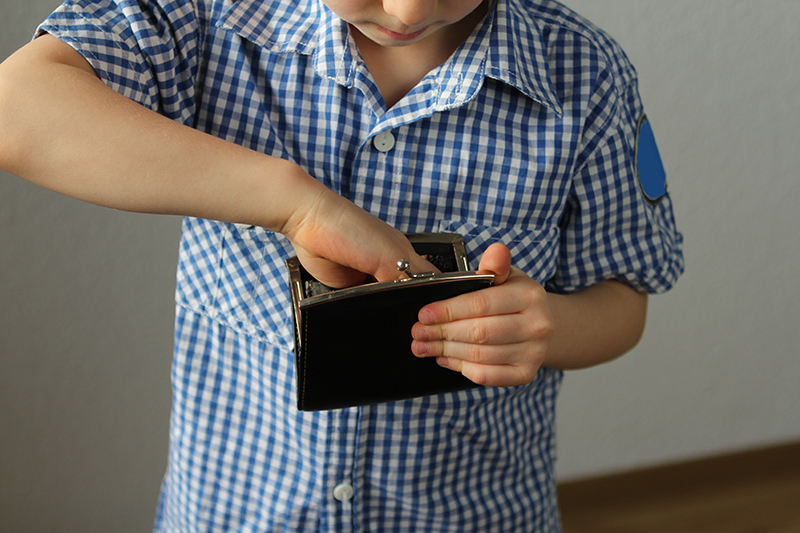Debra Matell Cohen, Ed.D.
John Winthrop Wright Director of Ethical Education
Character.org
Most kids know that stealing is wrong. So why do they do it? It’s also important for adults to recognize that not all kids who steal are on their way to becoming juvenile delinquents. So what do parents need to know? And what can caring adults do when they discover a child or teen stealing?
The American Academy of Child and Adolescent Psychiatrists (AACAP) tells us it is normal for very young children (ages 3-5) to steal. Some children at this age do not truly realize what stealing means. Psychologist Penelope Leach explains that a preschooler may not realize that taking something belonging to another person is wrong. “Shades of gray” are also difficult for children to understand. At this age children may take something they want without realizing their care provider needs to pay for the item or that the item belongs to someone else.
Moral psychologists maintain that school-age children (beginning around ages 6-8) are more likely to obey authority and follow the social rules as a way to receive approval (or avoid disapproval) from their care providers or teachers. Around age 9, children begin to think of “right and wrong” related to their self-interest. Children at this age are motivated to satisfy their own immediate needs and self-gratification. Children who steal at this age may also lack self-control, even when they know they are stealing something that belongs to someone else.
Adolescents are more likely to uphold the standards established by their family, school and society at large. Teens are also more likely to look for the approval of their peers; self-interest becomes less important. Stealing at this age occurs for different reasons, including the need to gain acceptance in their peer group, to demonstrate bravery or to show off, for the “thrill” of it, to give a present to a family member, as a form of rebellion, or to get money to support a drug or alcohol habit.
Below are more specific descriptions about why children and teens steal, adapted from Johns Hopkins University All Children’s Hospital, the New York State Office of Children and Family Services and Terrence Shulman, a self-described recovering shoplifter who, in addition being a practicing attorney, is a therapist who counsels shoplifters of all ages.
Acquiring desired objects
Very young children may not understand they cannot have something they want. Pre-teens and adolescents may steal items they want but are unable to afford.
Developmental lag
Preschool and school-age children may not understand the difference between personal and communal property. Some teens that lag behind in their moral development may not be able to differentiate between right and wrong.
Learned behavior
Children of any age can be susceptible to stealing if their parents or other care providers steal. They will often continue to steal because they believe it will please these adults.
Lack of attachment / Lack of adult involvement
A child (at any age) who has been abused or neglected may steal for a variety of reasons, including as a form of self-love, to rebel, or as a way to get back at the uncaring adults in her life.
Excitement / Adventure / Challenge
Adolescents may steal to see if they can avoid getting caught. This type of stealing is less about the object being stolen and more about the “thrill” of the activity and the feeling of power when the teen successfully steals an object without getting caught.
Peer pressure
An adolescent may be “dared” to steal, particularly in order to be accepted by a peer group. Stealing as a result of peer pressure is not about the stolen object but rather about the need to belong.
Feeling competent
If children steal and get “good at it,” they may continue to steal as a way of feeling good about themselves.
Supporting another need or habit
This includes stealing in order to get money to support a drug or alcohol habit or even to keep friends.
In the next part of our Series, I will examine what parents can do to ensure their children understand the different reasons why stealing is wrong. Parents need to help their children develop a moral code that guides them to do the right thing, even when the child may be in a situation when he or she could steal something with no chance of getting caught or punished. Parents need to find those “teachable moments” to help their children understand that stealing is not making the right choice, rather than emphasizing the consequences of getting caught.
Read the previous part of this series, Why Do Kids Lie? and sign up to receive the “Ethics in Action” blog and webinar series in your Inbox. Be sure to subscribe to receive Parts 2-5 in the Why Do Kids Steal? series:
Part 2: What Parents Can Do When Their Child is Stealing
Part 3: What Teachers Can Do When Their Students are Stealing
Part 4: What Workplace Leaders Can Do When Their Employees are Stealing
Part 5: Webinar: An Interview with an Expert on Why People Steal
Following this part of our series, we will also explore Why Do Kids Cheat?







This would be good to show my students.